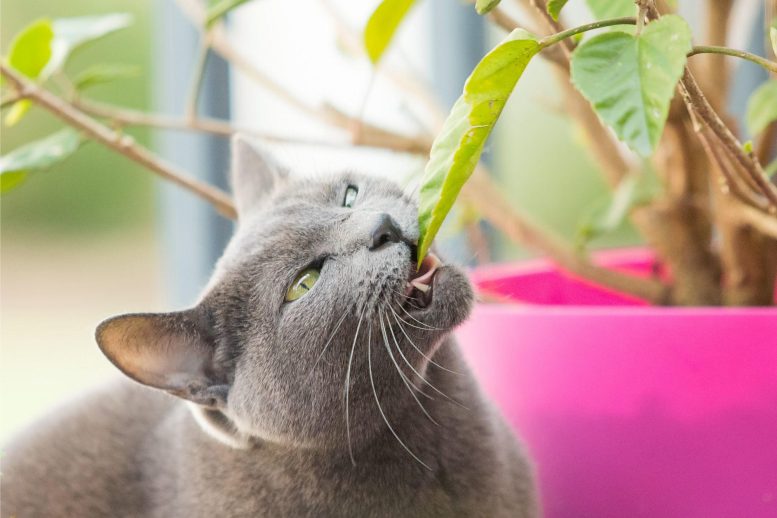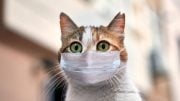
A new study found cats on vegan diets had perceived better health than those on meat-based diets, but differences weren’t statistically significant.
Although the differences in health outcomes were not statistically significant, they can provide insight into the concerns regarding the potential negative effects of vegan diets on cats’ health.
In a survey of cat owners, those who fed their cats vegan diets tended to report better health outcomes for their pets than those who provided meat-based diets, though the differences were not statistically significant. The research, led by Andrew Knight from the University of Winchester, UK, and his team, was recently published in the open-access journal PLOS ONE.
While many commercial pet foods are primarily made up of cooked meat, there’s a rising availability of alternatives that derive their protein from plants or fungi. Some experts in the veterinary field have expressed doubts regarding the health benefits of vegan diets for cats, given they exclude meat, eggs, and dairy. However, limited research has examined these concerns.
To help clarify the healthfulness of vegan cat diets, Knight and colleagues analyzed survey responses from 1,369 cat owners who were asked to report about a single cat in their household that had been fed either a vegan or meat-based diet for at least one year. The survey asked participants several questions regarding the cat’s health, followed by questions about its diet. About 9 percent of participants reported feeding their cat a vegan diet, and the rest a meat-based diet.

Owners reported seven general indicators of illness for 1,369 cats, some fed a vegan diet and some on a meat-based diet. Despite some concerns about vegan diets being possibly less healthy, cats on a vegan diet were reported as being more healthy or as healthy as cats on a meat-based diet for the studied indicators (increased veterinary visits, medication use, progression onto a therapeutic diet, reported veterinary assessment of being unwell, reported veterinary assessment of more severe illness, guardian opinion of more severe illness and the number of health disorders per unwell cat), without statistically significant differences. Credit: Anne-Lise Paris, www.in-graphidi.com, PLOS, CC-BY 4.0
After statistically accounting for other factors that could influence health—such as a cat’s age or whether it is neutered—the researchers found that participants reported that vegan diets were associated with a lower risk of several health indicators, although none of the differences were statistically significant. For instance, compared to owners of cats on meat-based diets, owners of cats on vegan diets tended to report fewer veterinary visits, less medication use, and that their veterinarian would be more likely to describe their cat as being healthier. After analysis, there was no statistically significant difference between the reported health indicators of cats on vegan diets and those on meat-based diets.
The survey also asked about 22 specific health disorders; 42 percent of owners of cats on meat-based diets reported at least one disorder, compared to 37 percent of owners of cats on vegan diets.
The researchers say their findings support the healthfulness of vegan diets for cats. They note, however, that they did not analyze the nutrient content of the cats’ diets.
Reference: “Vegan versus meat-based cat food: Guardian-reported health outcomes in 1,369 cats, after controlling for feline demographic factors” by Andrew Knight, Alexander Bauer, and Hazel Brown, 13 September 2023, PLOS ONE.
DOI: 10.1371/journal.pone.0284132
This research and its publication open access was funded by food awareness organisation ProVeg International. AK received this award ID: Oct2019- 0000000286. However, this funder played no role in study conceptualization, design, data collection, and analysis, preparation of the resultant manuscript nor decisions relating to publication.









Given the fact that cats have evolved to be what are usually considered “obligate carnivores,” the results are surprising. I’d like to see a more objective study than one depending on the subjective reports of the owners, including thorough blood and urine analyses. After all, omnivore humans often encounter long-term issues with vegan diets.
Cats seemed to have done just fine over thousands of year with their existing diets.
Seems to me, this is part of the same large push and propaganda, to get rid of meat out of diets.
I’ll go with what nature made us for.
Sure giving my pets vegetables as part of their diet is good, but I wont ever get rid of their meat.
I bet this study didnt look at the negative effects of removing meat based protein. There are chemical and biological differences in protein types and any carnivore or omnivore will suffer without meat based protein.
Torturing cats in this matter is awful. A cat will eat the feces of other animals just to get something resembling meat. Don’t do it.
1. Self reported studies have serious validity problems.
2. “Meat based” cat foods vary in quality and nutrition which the study didn’t address.
Overall, a completely useless study that doesn’t prove anything.
Yeah,” a statistically insignificant result”could be the title of this study. They’ll publish anything these days.
The were no statistically significant differences in reported health outcomes for meat and vegan diets, i.e. neither were better or worse.